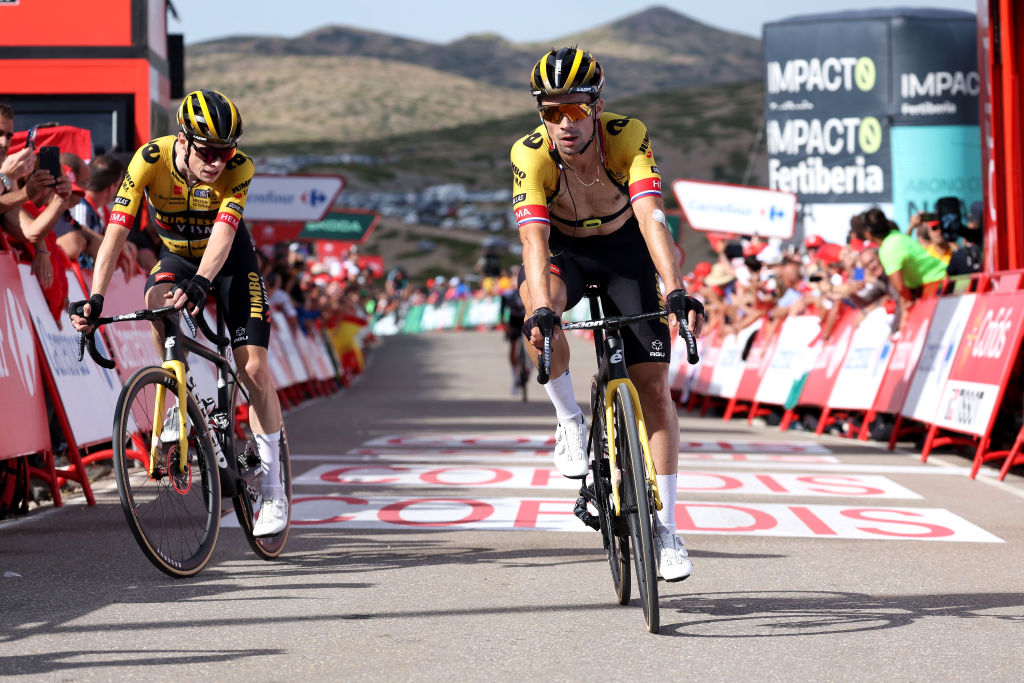Finally, it’s all starting to make sense and even though it’s taken six days for the real Vuelta a España to show itself, the wait has been worth it. The gimmickry of the opening stages in Barcelona will gradually fade from memory, but like everyone who followed those first two days I was wondering why on so many levels.
I struggle to understand why the Spanish national tour has the least confidence in itself compared to the other Grand Tours. The racing it generates is every bit as exciting, but an evening team time trial in a city was always going to be a bit of an obstacle course rather than a display of power and harmony. You can’t predict it will rain and turn into a farce, but given how slippery those surfaces are in the dry, then a modicum of thought for safety would not have gone amiss.
Same again for the Montjuïc circuit the following day. The Olympic Park has a number of choices of road and given the size and freshness of the peloton on the first road stage, opting for another assault course of twists, turns and dodgy downhills seemed like a questionable bit of planning.
With the amount of skin lost and nerves frayed, it was no surprise that a truce of sorts was called, though the usual suspects, Primož Roglič and Geraint Thomas, still managed to be involved in crash beforehand. I always say you can expect to fall off at least once in a Grand Tour, so hopefully that’s it for them.
I know it’s not fair to DSM-Firminech or Andreas Kron to ignore the first two stages, but as the Vuelta heads towards its second weekend, we’re starting to get an idea of who is ready to race and who isn’t. Defending champion Remco Evenepoel certainly is, and outsprinting everyone on the first of the seven mountain top finishes was a warning to his rivals because he appeared so comfortable on the Arinsal climb.
The fact that UAE Team Emirates made most of the pace making to reduce the lead group to 15 riders or so was notable, as was the reluctance of Jumbo Visma to challenge that situation. It certainly wasn’t what was expected given the Dutch squad had been the biggest losers in the Barcelona fiascos.
After that, it was the Kaden Groves and Alpecin-Deceuninck sprint-fest for two days, though Filippo Ganna pushed him close into Burriana on stage 5. For the moment there doesn’t look to be many contenders for the green jersey competition but it’s still early days and a lot of climbing to be done. That usually complicates things for the fast men.
Click Here to Read the Full Original Article at CyclingNews RSS Feed…

